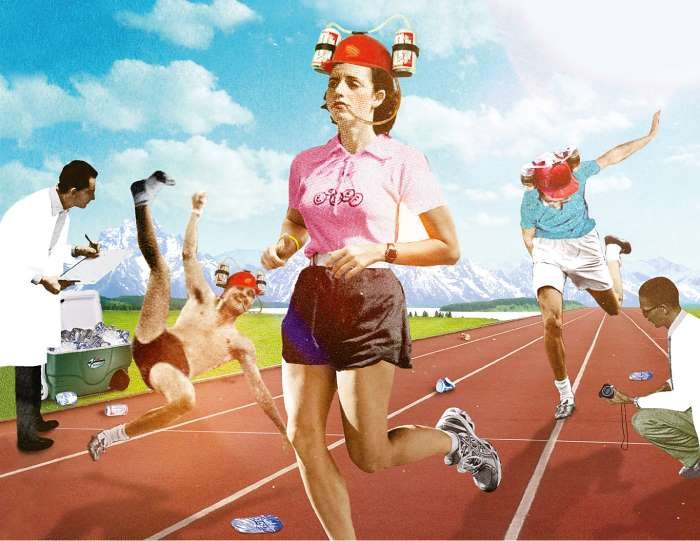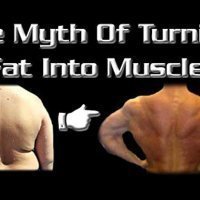Post-workout beer: yes or no?
As it is known, after intensive physical exercises a human body needs recovering. First, sweating at a gym we lose a fair amount of liquid and electrolytes, so the hydro-electrolytic balance has to be normalized. Second, during workouts we actively spend carbohydrate and protein reserves of the body which also need to be replenished.
And how can beer help in solving these problems? Everything is clear with carbohydrates, as beer is well known for its high content of these nutrients, which, by the way, contribute a lot to growing of a disgusting beer belly. As for protein, current researches suggest that even the use of low-alcoholic beverages inhibits the protein production in the body. After all, we also know that consumption of alcohol leads to dehydration since it activates fluid excretion through kidneys. So how do these facts relate to the recent statements about the launch of "recovery ale" on the sports drink market? Is this another advertising trick or a new dawn in science?
You'll be surprised, but it seems there is a lot of truth in the statement about a helpful post-workout effect of beer.
You'll be surprised, but it seems there is a lot of truth in the statement about a helpful post-workout effect of beer. However, this is not about high-alcohol beer, but about beverages with about 2.3% ABV, to which sodium is added as an electrolyte source. A research at the Griffith University showed that consumption of these beverages allows your body to lose less fluid after physical exercises thanks to a stronger electrolyte influence than of that of alcohol. Further studies confirmed that higher content of sodium in beer reduces the dehydrating effect of alcohol.

Low-alcohol beer with added sodium may offer a good compromise to those people who want to live the usual social life without sacrificing trainings.
Thus, it was proved that low-alcohol beer with added sodium may offer a good compromise to those people who want to live the usual social life without sacrificing trainings. Choosing a sports drink enriched by electrolytes, you can enjoy the favorite taste of beer and feel comfortable among drinking friends. And if you drink just low-alcohol beer, you can be sure that it has a less harmful effect on the water-salt balance, even if you drink it after workouts.
However, this doesn't mean that beer is better than simple water in its liquid retention effect. In fact, there are no results of other studies examining the impact of beer in the post-workout period in comparison with other beverages (although the scientists declared their intention to clarify this issue in further studies). Therefore, you should keep in mind that low-alcohol beer with added electrolytes is only a compromise between your habits and healthy life style. The good news is that beer has some other positive qualities which can make an excuse for its consumption after workouts.

It was proven that alcohol-free beer has beneficial effects on the immune system of athletes due to its high content of antioxidants and anti-inflammatory substances.
Specifically, it was proven that alcohol-free beer has beneficial effects on the immune system of athletes due to its high content of antioxidants and anti-inflammatory substances. The fact is that physical exercises require increased oxygen consumption by cells of skeletal muscles, which leads to intensified production of free radicals and then to negative effects on the immune system activity. A study showed that in athletes, who drank alcohol-free beer every day for about half a month before and after a marathon, higher resistance to cold and respiratory tract infections was observed. This data can support your burning desire to drink a pint of favorite alcohol-free beer after a gym.
Sources:
http://journals.plos.org/plosone/article?id=10.1371/journal.pone.0088384
http://www.ncbi.nlm.nih.gov/pubmed/23690556
http://www.ncbi.nlm.nih.gov/pmc/articles/PMC3665026/







